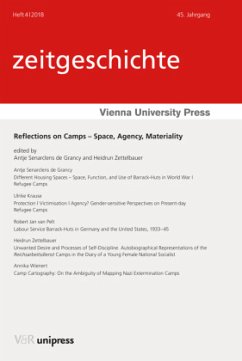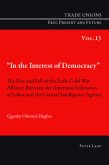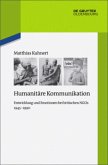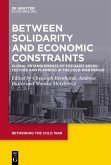Camps as a global and ubiquitous mass phenomenon of the present and a flexible isolation tool for/against specific socially, politically, or ethnically defined groups are at the centre of current policies and societal debates. In the present volume, the authors explore camps as (cultural) spaces in a broad sense and deal with their complex dimensions as sites of the Modern. They examine camp spaces and their social configurations, physical/architectural qualities, symbolic functions as well as cultural representations in an intent to define the inscribed ambivalences, inconsistencies and paradoxes of the phenomenon. Positioned within different disciplinary contexts (Contemporary History, Visual Studies, Architectural History, Refugee and Gender Studies), the assembled articles present a wide range of understandings and approaches to space, materiality and the relations between governance and agency. The contributors stress the entanglement of social structures, cultural discourse, institutionalisation, individual perception and appropriation. They show how the issue of camps can serve as cross-sectional matter for researchers in different fields in Cultural Theory and Contemporary History.
Hinweis: Dieser Artikel kann nur an eine deutsche Lieferadresse ausgeliefert werden.
Hinweis: Dieser Artikel kann nur an eine deutsche Lieferadresse ausgeliefert werden.








